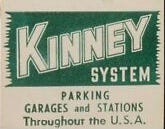RATLINKS: Short Month/Long Jacket
The story of how a great bet helped launch a mafia backed ipo
Welcome back readers to the second and shortest month of the year.
Long-time readers may remember the warning over the last few months that AI is coming and that it likely will change everything. Ratlinks past few editions including this one were written with a big assist from AI.
With the public release of chat-gpt, AI has gone electric. Allowing OpenAI the creator of chat-gpt to raise $10 billion from Microsoft at a massive valuation.
The current OpenAI business plan feels a bit like a storyline from the TV show Silicon Valley. OpenAI will continue to develop its large language model called GPT while simultaneously asking its sentient AI how to make money. This actually isn’t a terrible business model (unlike crypto) as AI seems like it can do anything and everything from passing MBA classes and medical exams to writing most of this newsletter.
We are on the cusp of a massive sea change similar to the invention of the automobile, electricity, and the internet. Chat-GPT is only the start. Current technology is dubbed GPT-3.5. One can only imagine what life will be like when versions GPT-7 or GPT-14 are released.
RatLinks will continue to evolve in order to remain interesting and relevant to our readers. Our team (1 guy and AI) will work tirelessly to create content and explain hard-hitting questions like:
Why are there so many different types of pasta?
"Pasta, ah pasta, with shapes so diverse, each one designed to hold sauces with panache and perfection, that's the pasta's main obsession. And let me tell ya, each shape's got its own flavor and flair, designed to enhance the ingredients that you pair." — Dean GPT Martin1
What is my purpose if AI can potentially do most things better than me?
Individuals must evolve and grow in order to successfully find fulfillment. That fortune cookie-like advice sounds good, but what does it mean?
A potential path is creating the ideal environment that fits your lifestyle.
Finding happiness, it's all about creating the life you desire, by setting expectations that truly set you on fire. — Terrible AI rhyming bot
Basketball bad boy Dennis Rodman's greatest achievement might have been his ability to create the “perfect scenario for a professional athlete”
He’s the only pro athlete that people expected to go out and party with strippers. Joe Namath did it and was chastised in New York. Michael Jordan got caught gambling on a golf course and everybody was hell-bent. With Dennis, moral ineptitude was part of his deal, he created this persona that made people say “oh yeah that’s perfectly normal.”
It’s genius when you think about it2
THE KOSHER NOSTRA
EDITORS NOTE: THIS STORY COULD AND SHOULD BE A MULTI-SEASON SHOW
I even go to the same barber, although I have a slightly better haircut.
— Patrick Bateman, American Psycho
While at my local barbershop, I noticed a framed picture on the wall of a newspaper clipping from the 1970s about a former customer named Meyer Lanksy, who used to frequent this barbershop.
Meyer Lansky, known as "the Mob's Accountant” was a prominent figure in organized crime in the United States during the mid-20th century. Lansky not only ran the Miami Mob but was a key member of the American National Crime Syndicate also known as Murder Inc. and is considered to have been one of the most powerful and influential organized crime figures in American history.
Lansky was also a savvy deal maker who merged his entity with the Italian mob creating a group known as The Combination. Lansky then served as Charles "Lucky" Luciano's financial advisor, helping to organize and manage the financial operations of the criminal organization they managed.
Lansky was the original FAT FIRE famously dying with a $0 net worth despite owning multiple casinos and having a fortune north of $300 million (700 million inflation-adjusted) only a few years before his death.
KINNEY PARKING
Lansky might have been the Mob’s Accountant but he wasn’t the only member of the deal team. In the 1960s another member of Murder Inc took his ownership stake public.
Manny Kimmel was perhaps the biggest horseracing bookmaker in New York and the owner of several racing horses. Kimmel was also known for his early forays into card counting backing Ed Thorpe, author of Beat the Dealer.
Manny Kimmel may have made the greatest bet ever when he won a Midtown Manhattan parking lot in a card game. That lot and subsequently purchased lots were used for everything from leasing his garages for storage of liquor during prohibition to ferrying craps players to New Jersey.
Kimmel grew his parking lots business into a venture known as Kinney Parking, which then used excess cash flow to purchase other businesses. The acquisition of Riverside Funeral Homes provided the acqui-hire of a young executive named Steve Ross who also had an appetite for new ventures. In the late 1950s, Ross started Abbey Rent a Car with a bank loan later merging it with the Kinney garage business.
By 1962 these mergers helped Kimmel turn his small parking lot venture into a publicly traded conglomerate. Kinney Service Corporation listed at $9 a share with a market valuation of $12.5 million. Due to Manny’s dubious history, Kinney’s largest shareholder became Kimmel’s son, Caesar Kimmel who ended up owning 170 thousand shares or 11% of the company worth about $1.5 million dollars at the time of the IPO.3
Ross like Kimmel was a gambler and in 1969, shot his shot when Kinney paid $400 million for the ailing Warner-Seven Arts film studio and the record business.
The bet paid off and by 1970, Kinney was trading at north of $30 a share, generating a 19% annual return since IPO. The company began to attract attention from journalists searching for Kinney’s related mob ties. To further avoid any risk to the legal enterprise Kinney renamed itself Warner Communications but that didn’t resolve all doubts with Mr. Ross remaining the subject of persistent innuendo, especially after two senior Warner executives, close friends of Mr. Ross, were convicted for their part in a racketeering scheme involving a mob-connected theater in Tarrytown, N.Y.4
In 1990, Warner merged with Time Life creating Time Warner along with a stock trading at $70 a share. Eventually, Time Warner merged with America Online in the most disastrous merger of all time. Fast forward to today and AOL Time Warner is no more. Instead, the entity split into multiple pieces with the story coming full circle when Warner Media was purchased by AT&T, the same AT&T that originally generated large undisclosed profits from people like Manny Kimmel who used AT&T’s wires to deliver horse racing results to bookmakers nationwide.
It’s unclear if Caesar Kimmel was actually the largest owner of Kinney / Warner but the Warner acquisition generated a return that likely made a few made men very very wealthy.
Caesar Kimmel died in 2018 at the age of 91. His obituary5 states that he was introduced to racing by his father, Manny, a legal bookmaker before pari-mutuel wagering began in New York.
More interestingly was Caesar’s system to name racing horses. He'd sit in his office at Warner Communications writing names down to play jokes on The Jockey Club, the breed registry for Thoroughbred horses.
Caesar got away with naming many a horse with names that probably never should have been approved like Titular Feast, Cold as A Witch's, Sock Tucker, Bodacious Tatas, Cunning Stunt, and Peony's Envy.
All thanks to winning a parking lot in a card game.
Honestly not AI’s best work
Jackson, Phil, and Hugh Delehanty. Eleven Rings: The Soul of Success, Penguin Press, New York, 2014, pp. 176–176.
Poundstone, William. “IPO.” Fortune's Formula: The Untold Story of the Scientific Betting System That Beat the Casinos and Wall Street, Hill and Wang, New York, 2006, pp. 138–140.





Awesome way to spend 6 minutes reading. Thank you for a terrific story Evan!